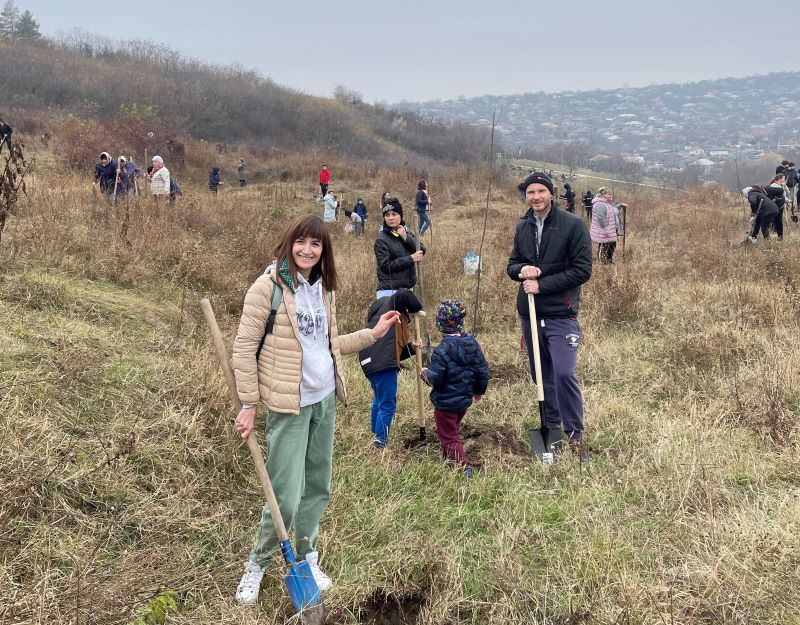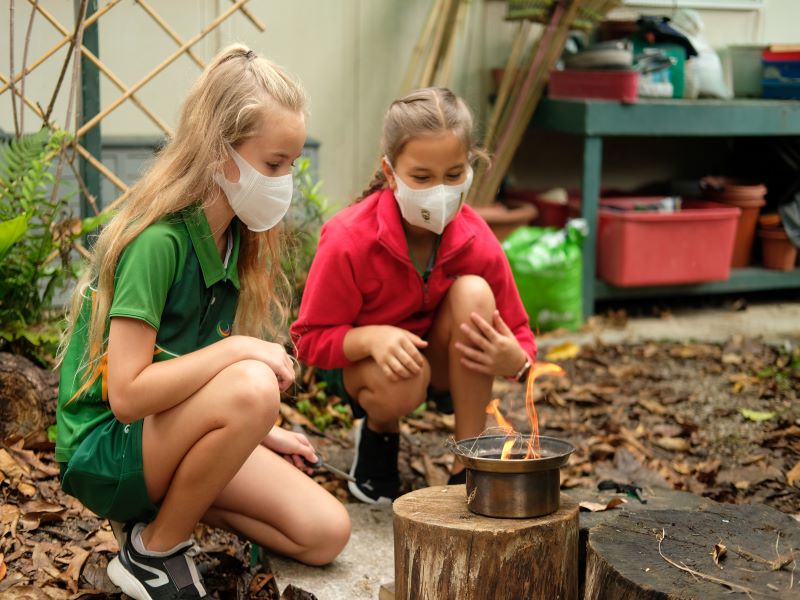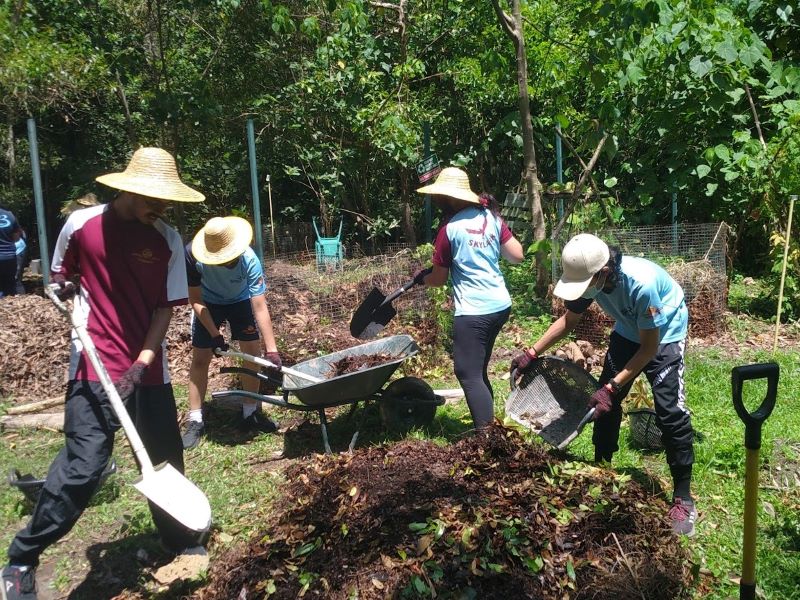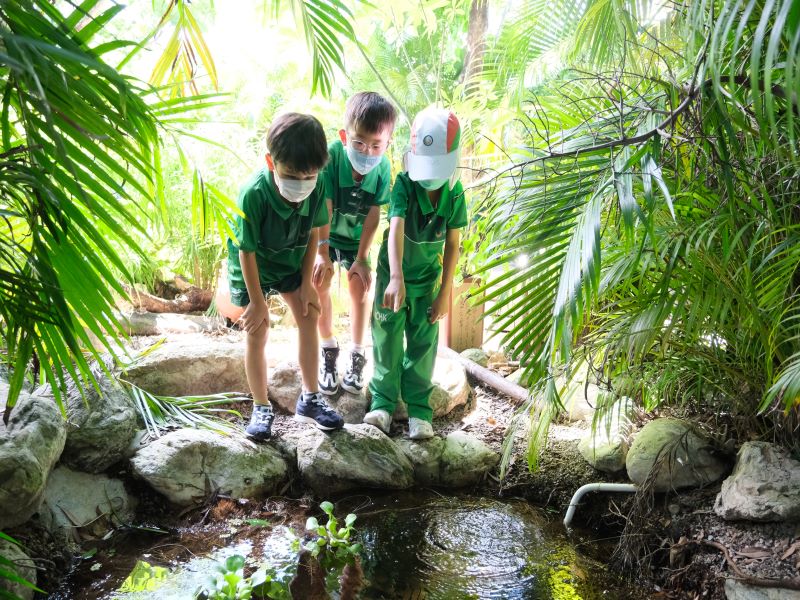Photo: ICHK Hong Lok Yuen, Hong Kong
Sustainability is increasingly a central pillar of many international schools and this was reflected in the wide range of applications and initiatives for the Sustainability category of this year’s International School Awards.
Successful initiatives in this category needed to not only help students develop attitudes towards supporting the environment, but also demonstrate evidence of enduring student-initiated or student-led projects. This required schools to take environmental action within their school or community and also to implement learning about sustainability throughout the curriculum.
The judges noted that several schools have tried to make extensive changes too quickly and the judges suggested schools implement a more in-depth focus on one specific area or theme, embedding it throughout the school before expanding an initiative. “You can’t do it all at once,” was their message to schools.
Four initiatives have been shortlisted for this year’s Sustainability Award. These are being implemented at Heritage International School in Moldova, International College Hong Kong in Hong Lok Yuen in Hong Kong, Jerudong International School in Brunei, and Wellington College International Shanghai in China.
Taking action and raising voices leads to global impact
Heritage International School in Moldova has been shortlisted for an initiative that incorporates the Climate Action Project into the curriculum for all age groups. In addition to student-led sustainability action across the school community, the project has involved students publicly speaking out about sustainability at all levels.
Working with the global programme has enabled students to engage in sustainability issues and actions in multiple ways. This has included communicating with their programme peers around the world and learning from each other about local context and impact, presenting at webinars and events including the Climate Action Day conference alongside change-makers including Sir David Attenborough and Jane Goodall, participating in the Global School Alliance Student Council, and using social media as a medium for campaigning for change by joining the Earth Day Take Action Global Instagram Takeover.
As a result, students are learning that, in combination, taking action and speaking out can be powerful agents for change.

Photo: Heritage International School, Moldova
Tree ownership helps young children develop sustainability roles and responsibilities
The International College Hong Kong (ICHK) in Hong Lok Yuen has implemented a Miyawaki tree planting scheme for its youngest students. The initiative helps children from the kindergarten and primary years to take ownership for the natural world and develop an understanding of their role in sustainability.
The Miyawaki method of planting, which is designed to promote tree growth, results in a mature forest within a few years allowing children to follow the development of the trees during their time at the school.
In addition to planting trees on the school campus, students have been allocated their own tree to care for and participated in a range of sustainability activities to help their tree to flourish. These have including mulching, weeding and monitoring tree growth based upon environmental conditions. The trees have also become a central theme for cross-curricular learning.
The initiative has been the springboard to the development of a community-wide organic farm on campus.

Photo: ICHK Hong Lok Yuen, Hong Kong
House groups collaborate to accomplish sustainability programme
Jerudong International School has implemented a student-initiated collaborative house-based sustainability programme. The initiative encourages all students from the school’s 16 houses to participate in a range of sustainability categories linked to the themes of the Eco-Schools Green Flag award in line with the United Nations Sustainable Development Goals. These include recycling schemes and green business challenges where the houses create and run profitable and environmentally friendly businesses.
The programme includes three levels of development with progression criteria for each house to accomplish. This encourages innovation, teamwork and leadership while eco-reps from each of the houses serve to share challenges and opportunities that can be addressed through inter-house collaboration. As a result, the house groups learn how to work together to achieve a common goal towards sustainability.

Photo: Jerudong International School, Brunei Darussalam
SDGs focus sustainability initiative around responsible consumption
The sustainability initiative at Wellington College International Shanghai centres around two of the United Nations Sustainable Development Goals. Curriculum and extra-curricular activities focus on the concept of responsible consumption.
A Green Plates strand investigates plant-based diets as a way of improving sustainability for the planet as well as healthy eating. Students participate in cooking classes, video campaigns, lunchtime incentives and assemblies related to the theme. The second strand focuses on ways to reduce waste and packaging and includes an annual schoolwide ‘Trashion Show’.
Through their learning and project ownership, students are encouraged to question if and how the school community can be an agent for change to protect and sustain the environment. This has resulted in some students successfully lobbying the school catering company to stop selling single-use drink cartons and high-sugar juices, other students promoting sustainability within city design, and the introduction of plant-based cooking classes for the entire school community.
Congratulations to all four schools. More details of their shortlisted initiatives are now available on the International School Awards platform, and you can join representatives from each of these schools speaking about their initiatives during the week of 16th January. The Sustainability Award this year has been sponsored by Trutex.



